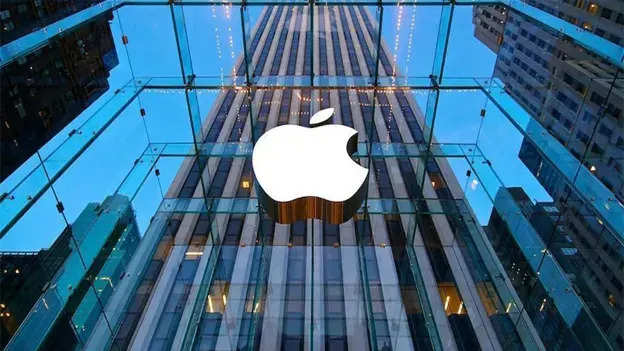Apple's market capitalization surpasses $3 trillion once more.

As the first business with a market value above $3 trillion, Apple Inc. created Wall Street history. This is the most recent illustration of big tech's unquestionable supremacy in equities markets.
The maker of the iPhone increased its value by 2.3% on Friday, adding to a rise that has increased its size by more than $983 billion this year and put it about a half-trillion dollars above the next-largest firm. Instigating a larger market rise that highlighted the dominance of tech megacaps, Apple's achievement of the milestone helped the Nasdaq 100 Index have its greatest first half ever.
Several strategists were caught off surprise by the surge, which has caused some to doubt its sustainability since the economy may experience further Federal Reserve interest rate increases. Investors are still enthusiastic about the growing potential of artificial intelligence, though, and they are drawn to Apple because of its abundance of quality attributes, such as its solid balance sheet, steady revenue streams, and dominant market position.
According to Jonathan Curtis, director of portfolio management for Franklin Equity Group, "the reason Apple has outperformed for more than a decade is not because investors are being foolish, but because it is executing on a business strategy that works, its earnings plan is working, and its lock on the consumer is only getting stronger.
"The financial sheet is outstanding, it pays a dividend that can grow, it has an active repurchasing programme, and it has a platform business akin to consumer staples, all powered by a gadget people look at four hours a day," said Curtis.
Citi initiated coverage of Apple on Thursday with a buy recommendation, indicating that Wall Street continues to be upbeat about the company, stating that Apple's capacity to keep growing margins was underrated. It expects the stock to rise by an additional 30%, which would put Apple's valuation near to $4 trillion.
The Billions Club
When Apple's market valuation was less than $340 billion and it made up roughly 3.3% of the S&P 500, it first overtook Amazon as the most valuable stock in the world in 2011. It has rarely given up the title since then. Midway through 2018, it attained a $1 trillion valuation, and in August 2020, it hit a $2 trillion valuation, becoming the first US firm to do so (Saudi Aramco was the first $2 trillion corporation overall).
Early in 2022, the maker of the iPhone momentarily surpassed the $3 trillion mark, but it was unable to sustain that position. From that height, a slump that has since been completely reversed began.
Businesses of this scale are uncommon, and the only other megacap technology and internet firms in the US that belong to this club are Alphabet Inc., Amazon.com Inc., and chipmaker Nvidia Corp., which earlier this year became the first chipmaker to reach the trillion-dollar mark. The only other American stock with a valuation over $2 trillion is Microsoft Corp.
While Nvidia, Meta Platforms Inc., and Tesla Inc. have more than doubled in value, surpassing Apple in the year's gains, its size and weight in the S&P 500 Index give it a significant impact over the markets.
But, the achievement doesn't guarantee Apple's future success. The company trades at almost 30 times anticipated earnings, which, while lower than its peak of nearly 35 in 2020, is still much higher than its 10-year average multiple of 17.9.
Analysts have been backing off the stock during the year's climb despite Citi's new bull call. The lowest such ratio among the trillion-dollar equities is less than 70% among the companies tracked by Bloomberg, who encourage purchasing the stock. Its consensus rating, which represents the ratio of buy, hold, and sell ratings, is also almost at its lowest point since November 2020. The most recent illustration of deteriorating sentiment was a recent downgrading from UBS.
Additionally, Apple is trading above the average price target, indicating that experts do not expect significant further increases from the current levels.
.png)